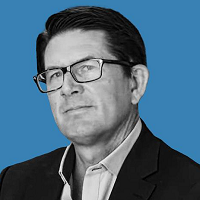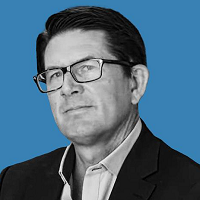Four 401(k) Mistakes to Avoid While Saving for Retirement
Now’s a good time to reflect on how to optimize your 401(k) savings and ensure you’re not making any of these common mistakes.


Profit and prosper with the best of Kiplinger's advice on investing, taxes, retirement, personal finance and much more. Delivered daily. Enter your email in the box and click Sign Me Up.
You are now subscribed
Your newsletter sign-up was successful
Want to add more newsletters?

Delivered daily
Kiplinger Today
Profit and prosper with the best of Kiplinger's advice on investing, taxes, retirement, personal finance and much more delivered daily. Smart money moves start here.

Sent five days a week
Kiplinger A Step Ahead
Get practical help to make better financial decisions in your everyday life, from spending to savings on top deals.

Delivered daily
Kiplinger Closing Bell
Get today's biggest financial and investing headlines delivered to your inbox every day the U.S. stock market is open.

Sent twice a week
Kiplinger Adviser Intel
Financial pros across the country share best practices and fresh tactics to preserve and grow your wealth.

Delivered weekly
Kiplinger Tax Tips
Trim your federal and state tax bills with practical tax-planning and tax-cutting strategies.

Sent twice a week
Kiplinger Retirement Tips
Your twice-a-week guide to planning and enjoying a financially secure and richly rewarding retirement

Sent bimonthly.
Kiplinger Adviser Angle
Insights for advisers, wealth managers and other financial professionals.

Sent twice a week
Kiplinger Investing Weekly
Your twice-a-week roundup of promising stocks, funds, companies and industries you should consider, ones you should avoid, and why.

Sent weekly for six weeks
Kiplinger Invest for Retirement
Your step-by-step six-part series on how to invest for retirement, from devising a successful strategy to exactly which investments to choose.
401(k) account balances have risen for retirement savers of every generation for the third straight quarter. This good news for hardworking Americans was revealed in Fidelity Investments’ Q2 2023 Retirement Analysis. Fidelity found that the overall average 401(k) account balance in the second quarter of this year increased to $112,400, up 8% from five years ago and 39% from 10 years ago.
Members of Generation Z experienced the largest year-over-year increase (66%) in 401(k) account balances during the quarter, followed by Millennials with 24.5%, Gen Xers with 14.5% and Baby Boomers with 6.3%.
For this positive trend to continue, 401(k) plan participants need to take the time to understand how to take full advantage of their plans and, ultimately, optimize their savings.
From just $107.88 $24.99 for Kiplinger Personal Finance
Become a smarter, better informed investor. Subscribe from just $107.88 $24.99, plus get up to 4 Special Issues

Sign up for Kiplinger’s Free Newsletters
Profit and prosper with the best of expert advice on investing, taxes, retirement, personal finance and more - straight to your e-mail.
Profit and prosper with the best of expert advice - straight to your e-mail.
Today (Sept. 8) is National 401(k) Day. This annual tribute gives American workers the opportunity to pause and reflect on how they can utilize their 401(k) savings accounts to achieve a financially secure and comfortable retirement. Below is a list of common mistakes that they should avoid while saving for retirement.
1. Don’t rely on your 401(k) for emergency expenses.
In order to fully maximize your 401(k) contributions, keep a “rainy day fund” with savings you can access in the event of an emergency. Ideally, you should begin setting aside money outside of your 401(k) for meeting emergency expenses before you enroll, or are automatically enrolled, in your 401(k) plan. This way, you won’t have to make premature withdrawals from your 401(k) account, which can reduce your retirement savings and income.
2. Don’t prematurely withdraw your savings — keep them incubated in your 401(k) for as long as possible.
When you withdraw savings from your 401(k) account before age 59½, you are subject to taxes and could face penalties on what you remove. Even more important, you also lose the compound interest that the withdrawn savings would have accrued had the sum stayed invested in your 401(k). In the same vein, if you switch jobs and have trouble rolling over your 401(k) savings from your old account into your previous employer’s plan, you’re better off keeping your savings invested there instead of cashing out the balance.
3. Start saving early, but don’t try to time the market.
The biggest advantage that retirement savers have is Father Time. The longer you save in a 401(k) account, the longer your hard-earned savings have to grow. At the same time, some participants can fall into the trap of being too aggressive with their retirement savings in an effort to time the market. Most participants aren’t market experts — and even the so-called experts can be wrong about the right time to buy or sell assets.
Instead, a more prudent approach would be to give your savings the time they need to grow in your 401(k) account as part of a thoroughly mapped out financial plan. This is a much safer bet for ensuring you have enough money when you are old enough to retire. Any questions you have about market timing and conditions should be discussed with a certified financial professional who is trusted by your family and friends — never make major 401(k) buying and selling decisions on your own.
Working with a professional who understands your goals and risk tolerances, and has collaborated with you on a well-laid-out financial plan, is the best way to attempt to protect your 401(k) and other retirement savings against market downturns.
4. Don’t miss out on your employer’s full match.
The SECURE 2.0 Act of 2022 only expands automatic enrollment for 401(k) plan sponsors. If you are automatically enrolled in your plan, you might as well take full advantage of what it offers. For example, make sure you find out the maximum employer match you can receive and how much you need to save in your 401(k) to become eligible.
Also, if you are automatically enrolled in your 401(k) plan, check to see that the employer match at which you have been enrolled isn’t less than what you’re entitled to receive. Even if it’s a difference of $10 a week in contributions, it can make a big difference when you’re old enough to retire.
Also, if you are automatically enrolled, check that the target date fund in your 401(k) account is the right fit for the income you need to save to meet your retirement goals. Furthermore, if your employer’s 401(k) plan offers access to guaranteed income solutions such as annuities, the full purchasing power of the plan itself will bring down the institutional fees you would otherwise be subject to if you invested in them outside of your plan.
401(k) plans have pretty much replaced pensions as the private sector vehicles for providing workers with income during retirement. Plan participants should take the time to understand how they can maximize their retirement savings through their 401(k) savings accounts, and be aware of common mistakes that could reduce their income in retirement.
related content
- To Auto-Increase or Not to Auto-Increase Your 401(k) Contribution Rate
- Thinking about Rolling Your 401(k) into an IRA? 7 Deciding Factors to Consider
- Ways to Avoid the Penalty on Early Retirement Withdrawals
- Why So Many Experts Consider Annuities a Win for Retirees
Profit and prosper with the best of Kiplinger's advice on investing, taxes, retirement, personal finance and much more. Delivered daily. Enter your email in the box and click Sign Me Up.

As the Head of Retirement for Envestnet, Sean plays a key role in the ongoing growth and alignment for Envestnet’s solutions for the workplace. Sean has over 25 years of experience in the financial services industry serving in a multitude of executive roles for some of the top firms in the asset management space. Prior to joining Envestnet, Sean was a Managing Director with BlackRock and led their Retail Defined Contribution Investment group while also serving on a variety of executive committees across the firm.
-
 How to Turn Your 401(k) Into A Real Estate Empire
How to Turn Your 401(k) Into A Real Estate EmpireTapping your 401(k) to purchase investment properties is risky, but it could deliver valuable rental income in your golden years.
-
 My First $1 Million: Retired Nuclear Plant Supervisor, 68
My First $1 Million: Retired Nuclear Plant Supervisor, 68Ever wonder how someone who's made a million dollars or more did it? Kiplinger's My First $1 Million series uncovers the answers.
-
 How to Position Investments to Minimize Taxes for Your Heirs
How to Position Investments to Minimize Taxes for Your HeirsTo minimize your heirs' tax burden, focus on aligning your investment account types and assets with your estate plan, and pay attention to the impact of RMDs.
-
 Don't Bury Your Kids in Taxes: How to Position Your Investments to Help Create More Wealth for Them
Don't Bury Your Kids in Taxes: How to Position Your Investments to Help Create More Wealth for ThemTo minimize your heirs' tax burden, focus on aligning your investment account types and assets with your estate plan, and pay attention to the impact of RMDs.
-
 Are You 'Too Old' to Benefit From an Annuity?
Are You 'Too Old' to Benefit From an Annuity?Probably not, even if you're in your 70s or 80s, but it depends on your circumstances and the kind of annuity you're considering.
-
 In Your 50s and Seeing Retirement in the Distance? What You Do Now Can Make a Significant Impact
In Your 50s and Seeing Retirement in the Distance? What You Do Now Can Make a Significant ImpactThis is the perfect time to assess whether your retirement planning is on track and determine what steps you need to take if it's not.
-
 Your Retirement Isn't Set in Stone, But It Can Be a Work of Art
Your Retirement Isn't Set in Stone, But It Can Be a Work of ArtSetting and forgetting your retirement plan will make it hard to cope with life's challenges. Instead, consider redrawing and refining your plan as you go.
-
 The Bear Market Protocol: 3 Strategies to Consider in a Down Market
The Bear Market Protocol: 3 Strategies to Consider in a Down MarketThe Bear Market Protocol: 3 Strategies for a Down Market From buying the dip to strategic Roth conversions, there are several ways to use a bear market to your advantage — once you get over the fear factor.
-
 For the 2% Club, the Guardrails Approach and the 4% Rule Do Not Work: Here's What Works Instead
For the 2% Club, the Guardrails Approach and the 4% Rule Do Not Work: Here's What Works InsteadFor retirees with a pension, traditional withdrawal rules could be too restrictive. You need a tailored income plan that is much more flexible and realistic.
-
 Retiring Next Year? Now Is the Time to Start Designing What Your Retirement Will Look Like
Retiring Next Year? Now Is the Time to Start Designing What Your Retirement Will Look LikeThis is when you should be shifting your focus from growing your portfolio to designing an income and tax strategy that aligns your resources with your purpose.
-
 I'm a Financial Planner: This Layered Approach for Your Retirement Money Can Help Lower Your Stress
I'm a Financial Planner: This Layered Approach for Your Retirement Money Can Help Lower Your StressTo be confident about retirement, consider building a safety net by dividing assets into distinct layers and establishing a regular review process. Here's how.